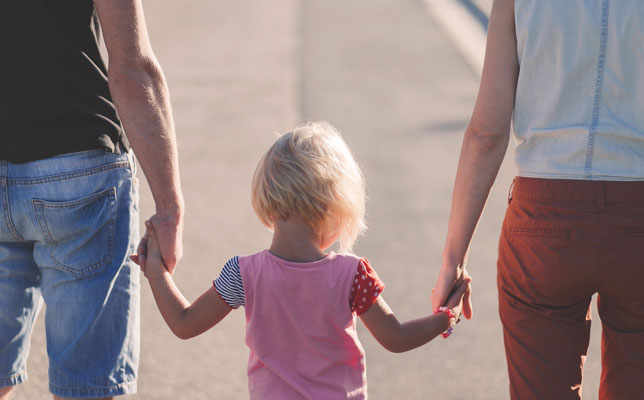This guest post is by Karie Boyd, an adoption attorney.
Potential adoptive parents have lots of things to consider, one of which is to decide on open or closed adoption.
In some cases, birth parents wish to learn about their biological child through things like updates, photos, and even occasional visits.
While the biological parents completely relinquish their parental rights prior to the finalization of adoption, they may still have some contact with the child after, which inevitably leads to some issues.
What are some of the most common issues with open adoptions, and how can parents navigate them?

Setting Appropriate Boundaries
Problems often arise when the adoptive and birth parents have different definitions of what boundaries are appropriate.
As such, it’s essential to lay out these definitions as soon as possible.
Some people rely on post-adoption contact agreements to create and adhere to boundaries, though the terms of these agreements are not legally binding.
Even with clear expectations from the beginning, parents are likely to encounter hiccups along the way.
Addressing problems as they occur is important, but so is the method by which parents work them out.
For example, email and texting can be valuable tools, but it’s also easy to misconstrue tone or intention.
This makes it easier to breed hurt or even feelings of resentment.
When faced with a problem during an open adoption, try to work things out via in-person communication. This allows for an honest dialogue and hastens solutions to conflicts.
When it comes to open adoptions and navigating relationships with birth parents, there is no “one size fits all” solution. These relationships may need a lot of trial and error to be successful.
However, taking certain steps can help make the process easier. Create boundaries from the beginning and consider drawing up a post-adoption contact agreement.
When problems do arise, attack them with open communication and resist the urge to communicate through passive methods like email and texting, where it’s easier to misconstrue information.
Sharing on Social Media
In the digital age, one of the most common problems comes from social media sharing and what is appropriate for birth parents to share regarding the child on their personal accounts.
Photo sharing on social media can be a wonderful way for adoptive parents to share updates instantaneously with the birth parents, but the adoptive parents may be uncomfortable with birth parents sharing photos of the child on their social media accounts.
The best way to handle this situation is by being upfront and explaining why it causes discomfort or anxiety.
Getting everyone’s feelings stated clearly as soon as possible makes it easier to facilitate a compromise.
Choosing Names For The Birthparents
One of the most common complications that can arise, especially when a child gets older, is what to call the birth parents.
This can be an awkward situation and it’s important to address the issue as soon as possible.
A variety of options may be appropriate and depend largely on the preferences of the adoptive parents.
Examples may include calling them by their first name or some derivative of “Mom” or “Aunt.”
In these situations, there are no hard and fast rules, only what makes the family most comfortable.
Whatever the case, be consistent to avoid confusion to the child. Talking through this issue as soon as possible will help mitigate any feelings of betrayal or hurt that can come with a topic so sensitive.
Create names for anyone who will be involved in the child’s life ahead of time and stick to them.
By observing these tips, adopting parents will be better equipped to navigate an open adoption.
Karie Boyd is an experienced family law attorney with offices in San Diego, Orange County, Los Angeles, and Sacramento. Karie Boyd’s legal team has extensive experience handling adoption, step parent adoption, open adoption, closed adoption, and more.
Do you have an adoption story to share? Email us any time or find out more about how to share it with our community.
Help us remove the stigma surrounding open adoption. Like us on Facebook.
